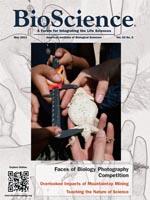I read with interest the recent article by Adamo (2013). The underrepresentation of women across many subfields of academic science and medicine is a pressing issue, with serious implications for the future of our national competitiveness and scientific progress. Therefore, I was pleased to see this article exploring potential factors contributing to the attrition of women within the biological sciences and attempting to draw valuable lessons from the comparatively successful retention efforts in medical fields. However, I was struck by the author's omission of a discussion of gender bias as a potential factor contributing to the scarcity of women.
Recent research conducted by me and an interdisciplinary team of coauthors (Moss-Racusin et al. 2012) builds on a large body of social science work and demonstrates that both male and female science faculty members exhibit robust, measurable gender biases benefiting their male students. More specifically, biology, chemistry, and physics faculty members at research-intensive universities across the United States judged a female student to be less competent, less hirable, and less deserving of mentoring than an identical male student and also paid the female student almost $4000 per year less for a lab manager position. These data suggest that, in addition to the workload and motherhood factors discussed by Adamo, subtle gender biases favoring men may contribute to the gender disparity within science fields.
Indeed, gender bias may play a direct role in driving women out of science (e.g., if they encounter an obviously biased professor) but could also be playing a more subtle role (e.g., if women's motivation and enthusiasm for science are undercut by inadequate mentoring, unfair pay, and downgraded evaluations of their competence). Therefore, although I wholeheartedly agree that the scientific community should work to identify and interrupt the processes that undermine women's full participation in science, I would argue that gender bias should be considered as a potential cause for the loss of women in science, along with the other variables that Adamo considered.





